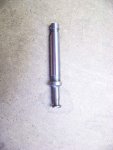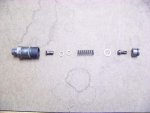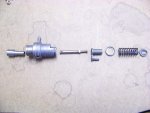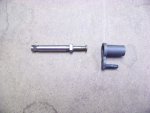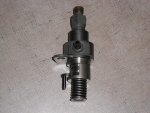- 235
- 60
- 28
- Location
- glasgow,ky
I finally got the 802a fired up, or at least it was spinning..
I disconnected wire #6 to the voltage regulator in advance 'cause I figured it would need to crank a while, and I wanted to address getting the engine running and at this point I don't care if it generates any electricity at all.
I did the fuse mod as well, but the manual tells me that if Pin 6 is disconnected it won't generate any electricity.
Wouldn't start.
There seemed to be plenty of fuel going down the return-to-tank line, so I pulled the injectors. There was plenty of fuel on the input side, but the business end of the injector was dry as a bone.
So, it looks like they will come apart if I unscrew 'em. Anyone have any suggestions/tips on getting these things working again? Haven't taken them apart yet -- am I in for any surprises in disassembly?
Upon re-assembly are they just screwed back together to make them tight or is there some sort of adjustment?
Any suggestions would be appreciated...
z
I disconnected wire #6 to the voltage regulator in advance 'cause I figured it would need to crank a while, and I wanted to address getting the engine running and at this point I don't care if it generates any electricity at all.
I did the fuse mod as well, but the manual tells me that if Pin 6 is disconnected it won't generate any electricity.
Wouldn't start.
There seemed to be plenty of fuel going down the return-to-tank line, so I pulled the injectors. There was plenty of fuel on the input side, but the business end of the injector was dry as a bone.
So, it looks like they will come apart if I unscrew 'em. Anyone have any suggestions/tips on getting these things working again? Haven't taken them apart yet -- am I in for any surprises in disassembly?
Upon re-assembly are they just screwed back together to make them tight or is there some sort of adjustment?
Any suggestions would be appreciated...
z



